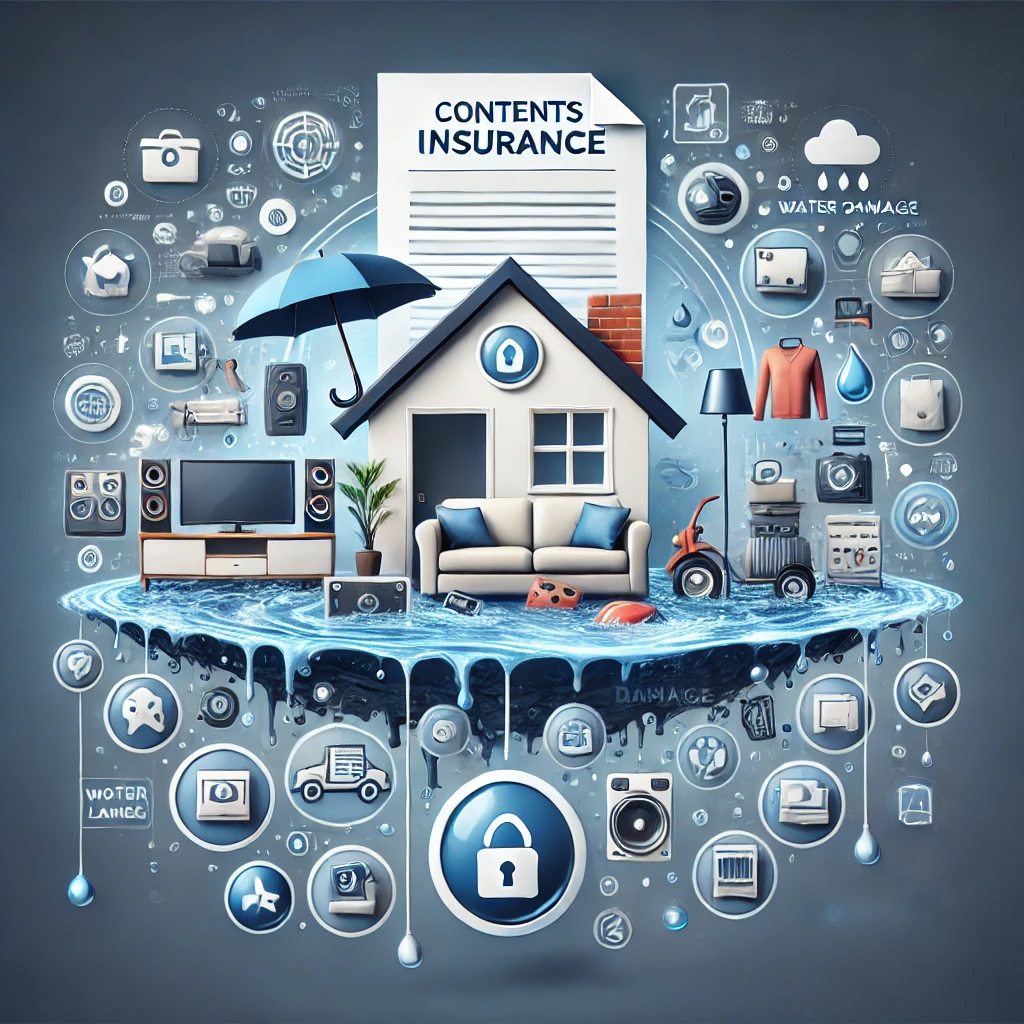Does contents insurance cover leaks?
We will search the top carriers for you for the best offer.
Contents Insurance Cover Leaks
If a water leak damages your personal belongings, it’s important to know when your contents insurance will help—and when it won’t. Most policies cover sudden and accidental leaks but explicitly exclude damage caused by gradual wear or lack of maintenance.
1. When Leak-Related Damage Is Covered
Contents insurance typically covers damage to personal items if the leak is sudden, accidental, and internal. Examples include:
A burst pipe flooding furniture or electronics
A washing machine or dishwasher suddenly overflowing
A roof leak caused by storm damage drips onto your possessions
In such cases, insurers usually reimburse repairs or replacements for damaged items, subject to your deductible and coverage limits.
2. What Isn’t Covered
Policies generally won’t cover leaks arising from gradual damage or poor maintenance, including:
Slow drips from faucets, pipes, or seals
Mold, rot, or warping due to long-standing dampness
Dormant leaks caused by neglected roofs or foundations
Damage existing before policy purchase or resulting from wear and tear is often excluded.
3. What Costs Are Covered vs. What You Pay
If the leak qualifies under your policy:
Personal items such as electronics, furniture, books, and clothing may be covered
Some policies may cover needed repairs or removal costs to access the source of a leak
Standard policies do not pay for repairing or replacing the source, such as pipes or washing machines—unless you have optional add-ons like “trace and access” or “escape of water” endorsements.
4. How to File a Successful Claim
To boost your approval chances:
Document damage promptly with photos
Report the incident quickly to your insurer
Keep repair or replacement estimates and receipts
Minimize further damage—turn off water, move items, and begin drying affected areas
5. When You May Need Extra Coverage
Standard contents insurance usually excludes:
Flood or external water damage—requires a separate flood policy
Sewer or drain backups—typically excluded unless endorsed
Mold damage caused by ongoing moisture or leak negligence
To fully protect your belongings, consider adding flood coverage, mold riders, or sewer backup protection.
Summary Table
| Leak Type | Covered? | Notes |
|---|---|---|
| Burst pipe or appliance overflow | Yes | Sudden, internal, and accidental conditions |
| Gradual leaks or slow seepage | No | Considered maintenance-related damage |
| Roof leak from storm damage | Yes | Only if caused by covered perils |
| Flooding or surface water intrusion | No | Requires separate flood insurance |
| Sewer or drain backup | No | Needs a specific rider |
| Mold from unaddressed leak | No | Typically excluded unless mold coverage added |
Final Takeaway
Contents insurance does cover damage from sudden internal water leaks, but not long-term maintenance issues, floods, or backups. Carefully document and report any incident to improve your claim’s chances.
Need help evaluating your contents coverage for leaks or adding protection options?
THAgency works with nearly 100 carriers and offers over 30 years of insurance expertise. Send your request and receive a personalized review to help compare options, identify gaps, and find the best solution for your needs.

Related Posts
Get a Right Insurance For You
SHARE THIS ARTICLE
We will compare quotes from trusted carriers for you and provide you with the best offer.
Protecting your future with us
Whatever your needs, give us a call, have you been told you can’t insure your risk, been turned down, or simply unhappy with your current insurance? Since 1995 we’ve been providing coverage to our customers, and helping people across United States.












